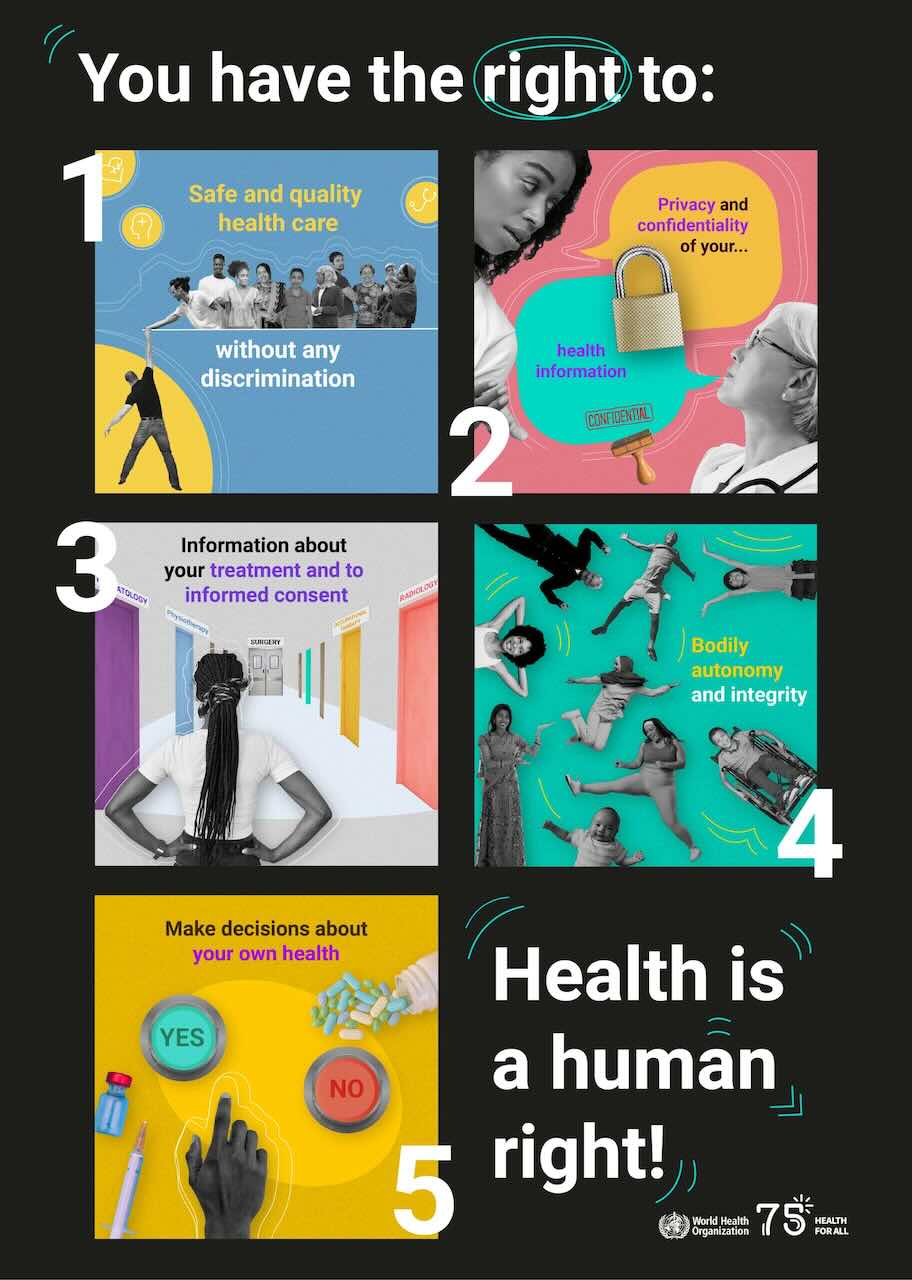World Health Day 2024: My health, my right
Celebrating World Health Day: My health, my right
Around the world, the right to health of millions is increasingly coming under threat.
Diseases and disasters loom large as causes of death and disability.
Conflicts are devastating lives, causing death, pain, hunger and psychological distress.
The burning of fossil fuels is simultaneously driving the climate crisis and taking away our right to breathe clean air, with indoor and outdoor air pollution claiming a life every 5 seconds.
The WHO Council on the Economics of Health for All has found that at least 140 countries recognize health as a human right in their constitution. Yet countries are not passing and putting into practice laws to ensure their populations are entitled to access health services. This underpins the fact that at least 4.5 billion people — more than half of the world’s population — were not fully covered by essential health services in 2021.
To address these types of challenges, the theme for World Health Day 2024 is 'My health, my right’.
This year’s theme was chosen to champion the right of everyone, everywhere to have access to quality health services, education, and information, as well as safe drinking water, clean air, good nutrition, quality housing, decent working and environmental conditions, and freedom from discrimination.
Message of the Regional Director, Dr Matshidiso Moeti
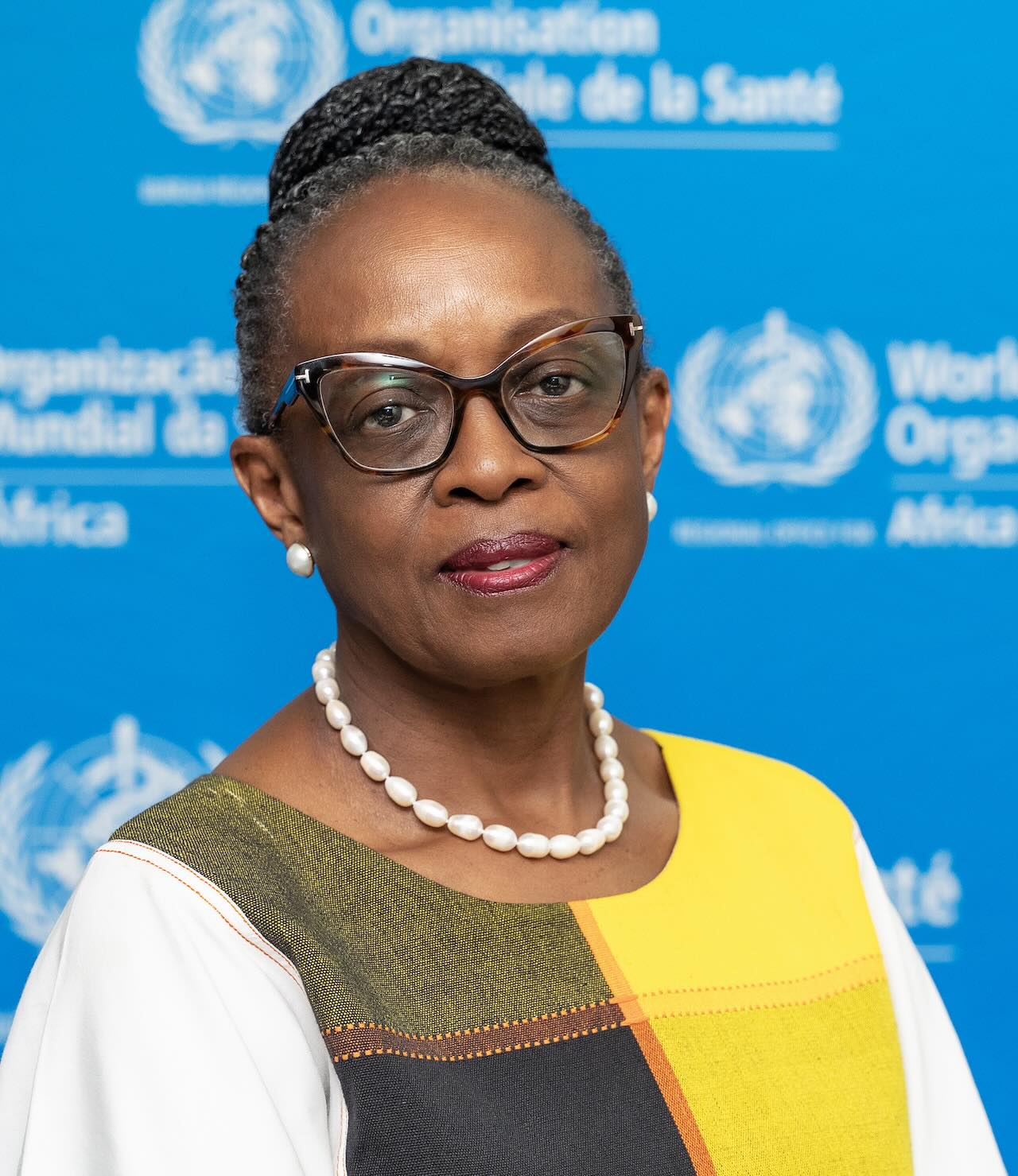
On World Health Day, 7 April 2023, we began a year-long commemoration of WHO’s 75th Anniversary. I thank our Member States, partners, and stakeholders for their enthusiasm and support. It has been a season rich in festivities and reflections.
We’ve looked back on public health successes that have improved the quality of life of populations during the last seven decades and summoned the energy to tackle the health challenges of the next 75 years.
As we close the celebrations today, the theme for World Health Day 2024, “My Health, My Right” is appropriate to recall how we increased the rights of our region’s people through health.
With our Member States, we have made significant progress in ensuring better health outcomes for our people over the past decade. More mothers and children are surviving today than before. From 2000 to 2020, the life expectancy of African women increased from 54 to 67 years; the maternal mortality ratio decreased by 33% (from 788 to 531 maternal deaths per 100 000 lives), and the number of children dying before the age of 5 was reduced by 50% from 2000 to 2017.
Between 2011 and 2021, the number of new HIV infections and AIDS-related deaths decreased by 44% and 55%, respectively, across Africa, and the number of TB deaths decreased by 26%. In addition, several diseases are on the verge of eradication and elimination, including polio, guinea worm disease, as well as maternal and neonatal tetanus.
Feature stories
Meeting the health needs of Malians displaced by security crisis
Ménaka – Sitting holding her newborn in the courtyard of her home, Aissata*, a displaced person in Ménaka city centre, remembers the day she fell ill while pregnant. "My stomach hurt that day, I was weak and I had no appetite. Worst of all, I had no money and my husband was away," she recalls.
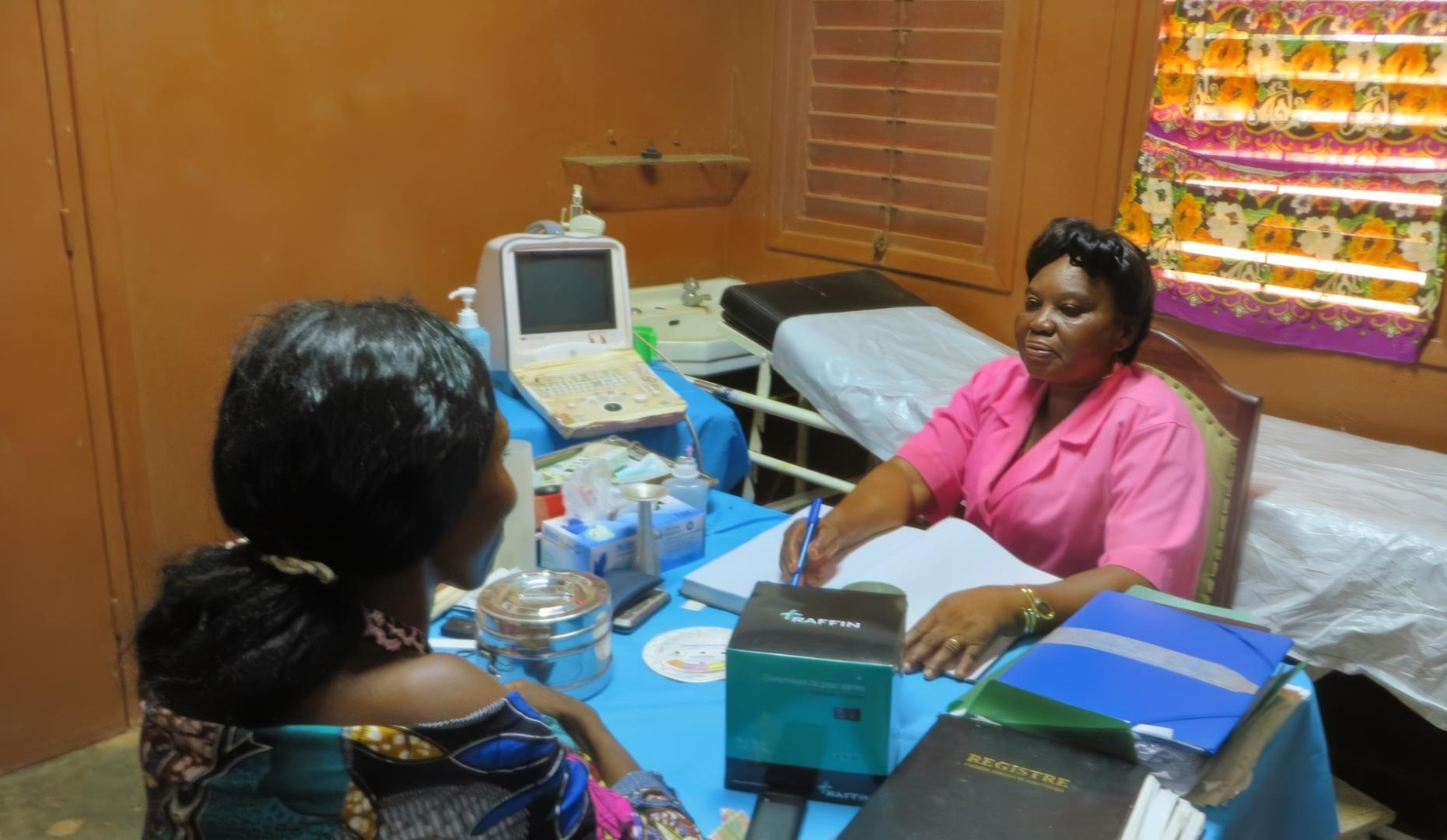
Mama Maguy, a comforting shoulder for rape survivors in CAR
Kaga Bandoro – Marguerite Mallo Bagaza, affectionately known as Mama Maguy, is the only state midwife in the Nana Grébizi health district, in the central-north region of the Central African Republic (CAR).
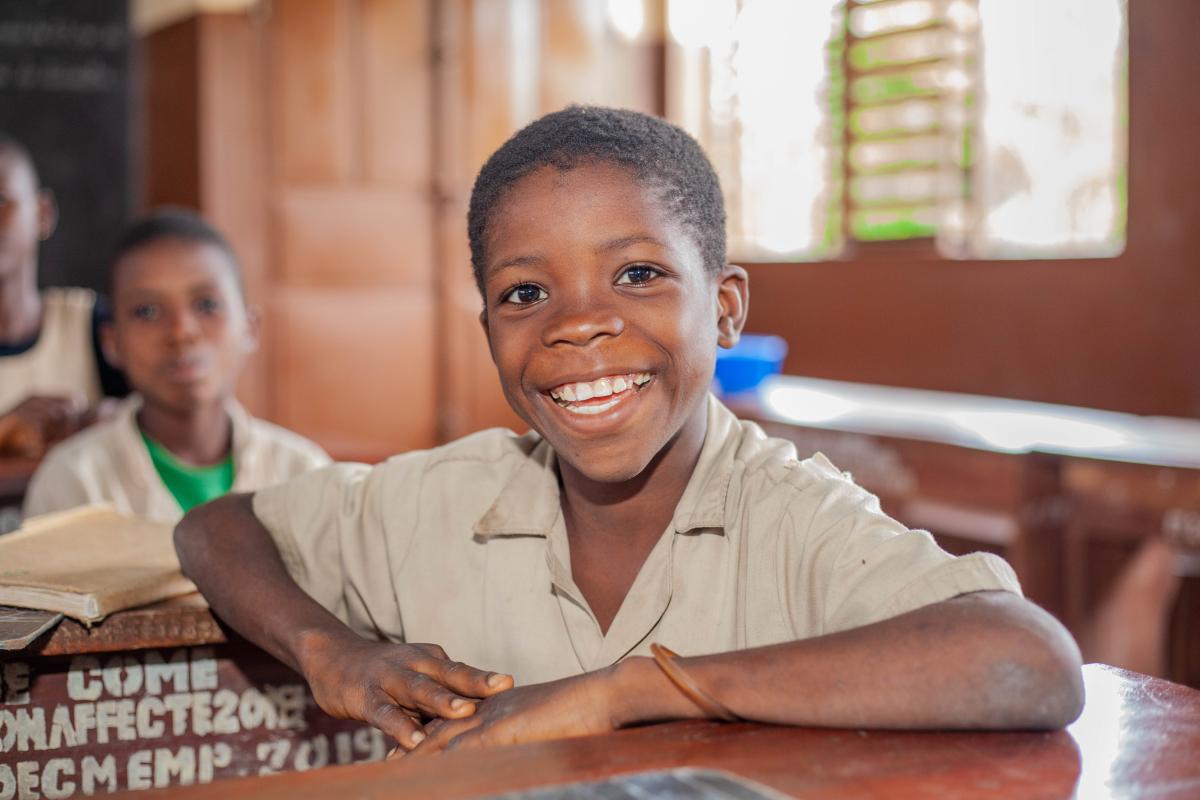
Benin: Nutrition and health monitoring to bolster children’s health
Porto-Novo – Every day of the week, all primary and pre-primary pupils attending Benin's state schools are provided with a hot meal, served up in school canteens courtesy of the country’s National Integrated School Feeding Programme. The aim is to accelerate progress towards meeting the Sustainable Development Goals (SDGs) related to the elimination of hunger, and health, well-being and education for all, while supporting increased school enrolment and retention rates.
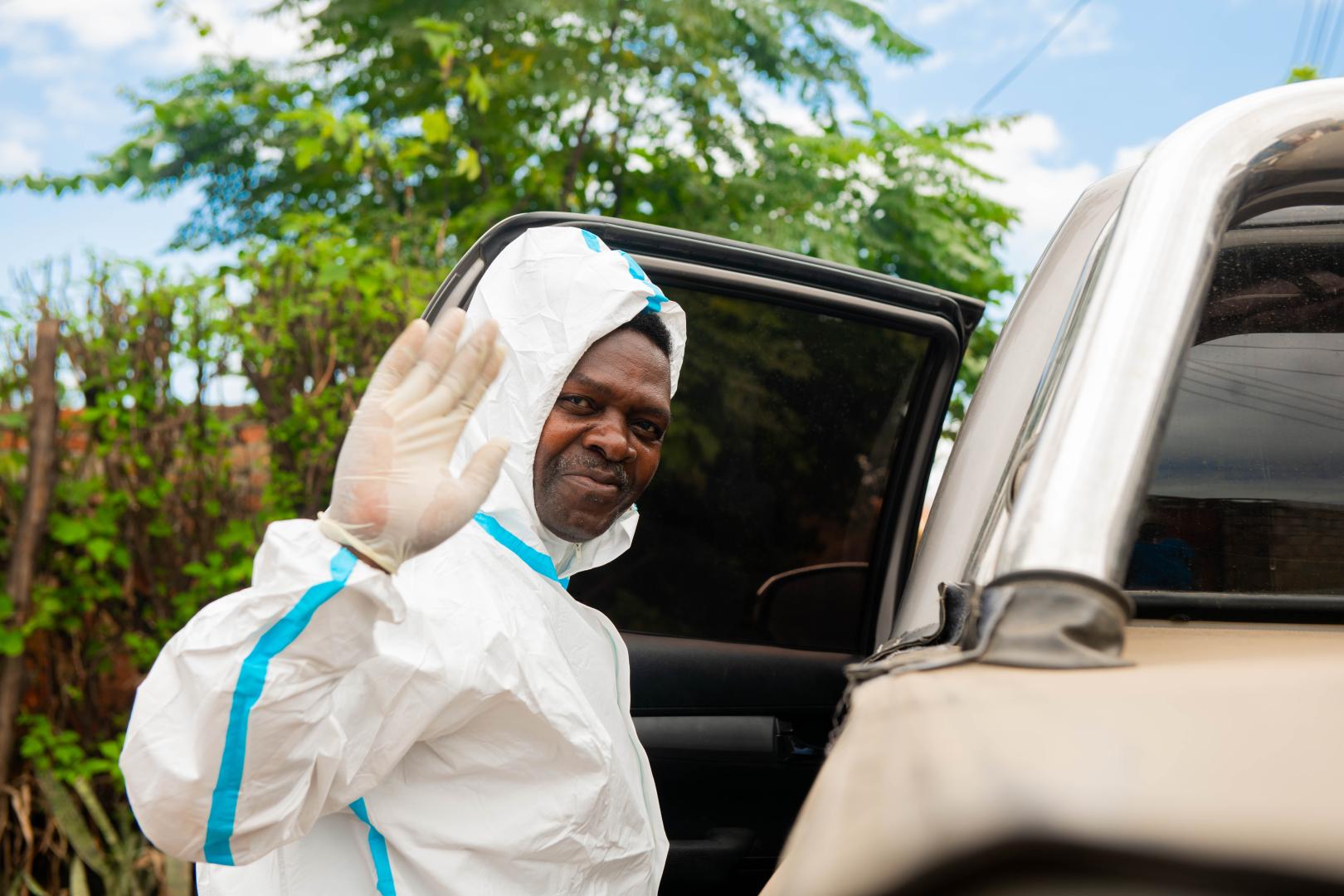
Zambia: Supporting the response to the worst cholera outbreak in the country’s history
Lusaka – During his 30 years as a community-based volunteer, Albert Nkhoma has witnessed his neighbourhood, Kalikiliki, in Zambia’s capital city Lusaka, grapple with public health challenges, including the COVID-19 pandemic. More recently he worked tirelessly to support the response to the worst cholera outbreak in the country’s history. Throughout, his commitment to health promotion has not wavered.
Entrenching person-centred life-stages care to advance the right to health in Sierra Leone
Freetown – Twenty-five-year-old Yainkain Sesay is expecting her first child. Before her first antenatal visit to King Harman Maternity and Child Hospital in Freetown, Sierra Leone’s capital city, she was anxious. “When I visited the hospital before I was pregnant, it was hard because I couldn't afford to pay for all the treatment,” she says. But when she returned this time, she was pleasantly surprised.
Single Word Challenge on - My Health, My Right
The theme for World Health Day 2024 is: "My Health, My Right." As part of activities to commemorate the day, we invite all staff to participate in a creative single word exercise that explores our understanding of the theme of this year’s World Health Day – My Health, My Right.
How to Participate?
Find the one WORD that resonates the most. What single word captures your understanding and feelings about "My Right, My Health"? Is it "Empowerment", "Equity", "Accessibility", or something entirely unique? This is your chance to express your perspective!
Click hereenter your one single word (Available in English, French, and Portuguese). A curated list of " answers” will be displayed on the AFRO website 7 April 2024. Don't Miss Out! Join this unique single word exercise on My Health, My Right.
To learn more about WHO’s commitment to Right to Health, please attempt the anonymous Health knowledge check. You will be able to see the right answers after submitting your responses!
For additional resources or support, please contact the AFRO Gender, Equity, and Human Rights (GER) unit at: oyeladet@who.int; nangkengn@who.int; calixtep@who.int.




